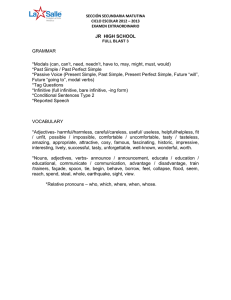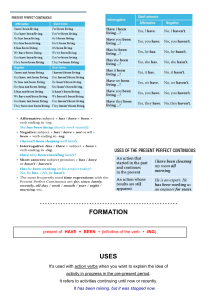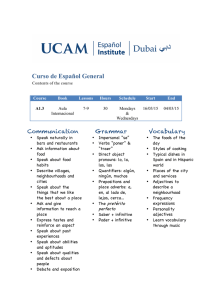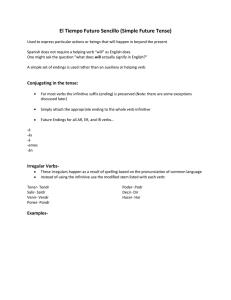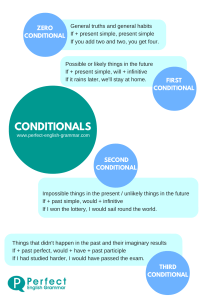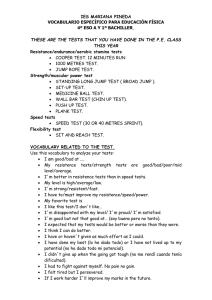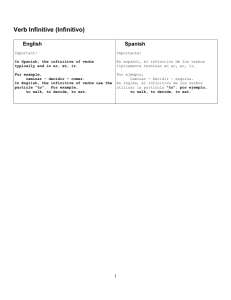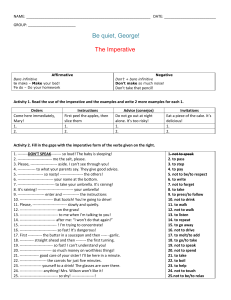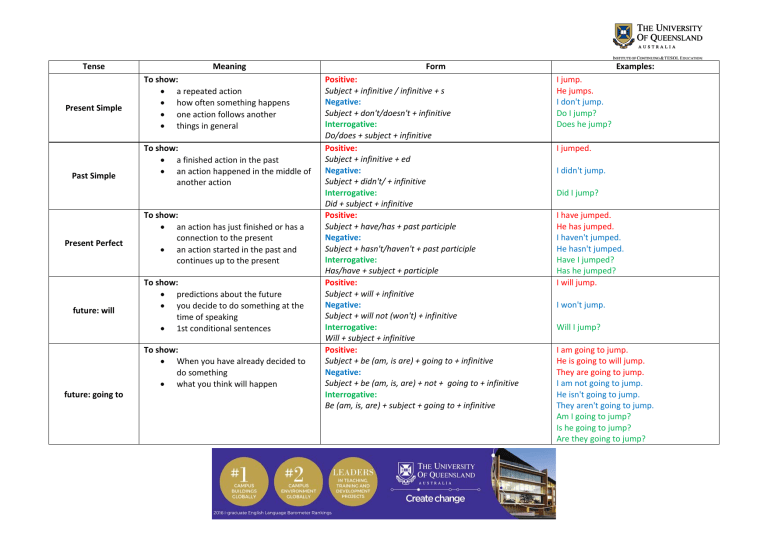
Tense Present Simple Past Simple Present Perfect future: will future: going to Meaning To show: • a repeated action • how often something happens • one action follows another • things in general To show: • a finished action in the past • an action happened in the middle of another action To show: • an action has just finished or has a connection to the present • an action started in the past and continues up to the present To show: • predictions about the future • you decide to do something at the time of speaking • 1st conditional sentences To show: • When you have already decided to do something • what you think will happen Form Positive: Subject + infinitive / infinitive + s Negative: Subject + don't/doesn't + infinitive Interrogative: Do/does + subject + infinitive Positive: Subject + infinitive + ed Negative: Subject + didn't/ + infinitive Interrogative: Did + subject + infinitive Positive: Subject + have/has + past participle Negative: Subject + hasn't/haven't + past participle Interrogative: Has/have + subject + participle Positive: Subject + will + infinitive Negative: Subject + will not (won't) + infinitive Interrogative: Will + subject + infinitive Positive: Subject + be (am, is are) + going to + infinitive Negative: Subject + be (am, is, are) + not + going to + infinitive Interrogative: Be (am, is, are) + subject + going to + infinitive Examples: I jump. He jumps. I don't jump. Do I jump? Does he jump? I jumped. I didn't jump. Did I jump? I have jumped. He has jumped. I haven't jumped. He hasn't jumped. Have I jumped? Has he jumped? I will jump. I won't jump. Will I jump? I am going to jump. He is going to will jump. They are going to jump. I am not going to jump. He isn't going to jump. They aren't going to jump. Am I going to jump? Is he going to jump? Are they going to jump?
